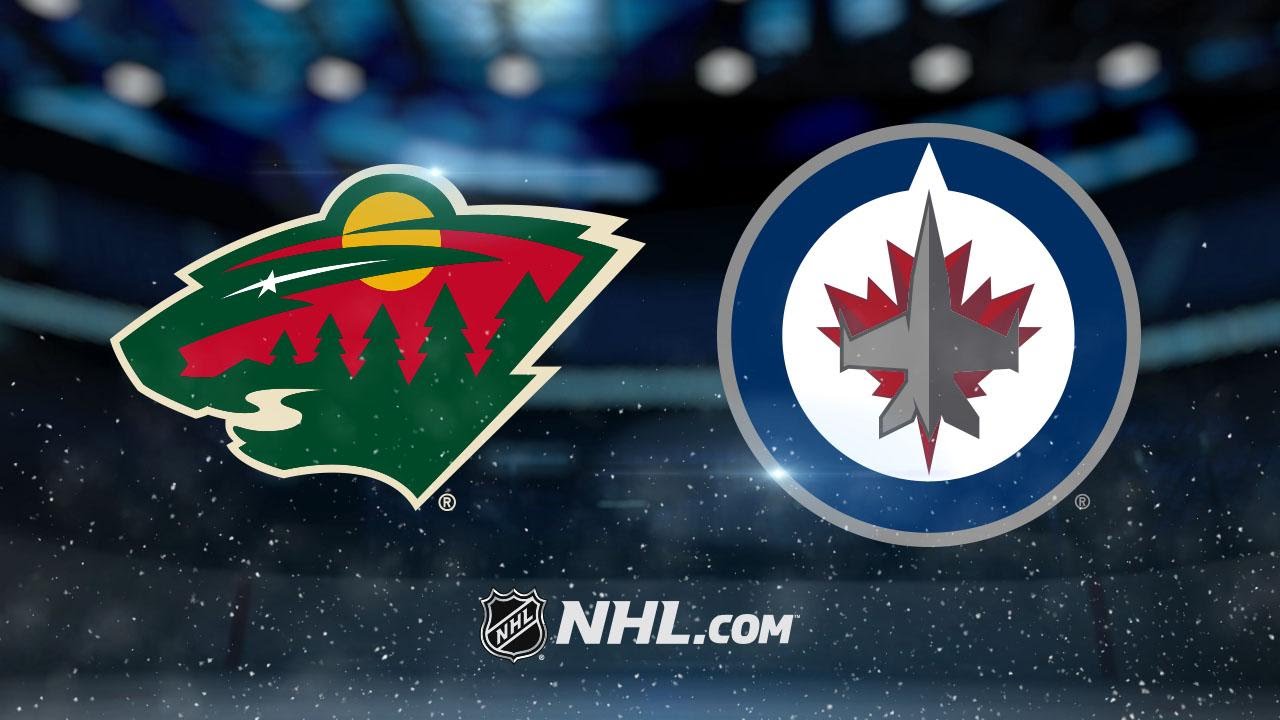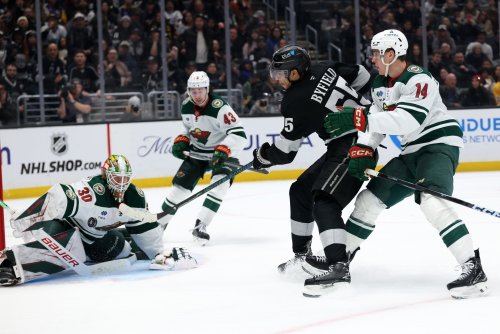
We haven’t created a rivalry yet. It’s the potential, everybody talks about it, so it will get created, probably through the media.
-- former Jets coach Claude Noel in an October 2013 Globe and Mail article
Anyone who has been to a Minnesota Wild-Winnipeg Jets game knows why this rivalry is forming. Maybe it’s the media promoting it, but it’s hard to describe or even to understand by watching on television. Either way it has grown in recent years without the NHL really pushing it. Being that close to die-hard fans that have driven seven hours south to watch the game at the Xcel Energy Center, however, adds to the tension in the building and is the lifeblood of any great rivalry.
In many ways the Wild’s rivalry with the Jets thumbs its nose at NHL commissioner Gary Bettman. Both markets have had their teams relocated, only to have the league return to St. Paul and Winnipeg, respectively, since the turn of the century. The original Jets moved to Phoenix and became the Arizona Coyotes and have long struggled on the ice and are financially unstable off it. The North Stars moved down to Dallas where they are recovering from a bankrupt owner that drove them into the ground after they won a Stanley Cup in 1999.
It was part of a larger trend in the NHL where they league moved its focus from Canada and traditional American hockey markets to the Sun Belt; eschewing traditional hockey markets for large, warm metro areas. Since Bettman took over as NHL commissioner in 1993 the league has added teams in Atlanta and Orange County, Nashville and Sunrise, Fla. Both Tampa Bay and the Bay Area added teams; Quebec City and Winnipeg lost theirs.
Some of this expansion has worked out. The San Jose Sharks and Anaheim Ducks have established a rivalry and have large fan bases. The Predators have a niche fan base in Nashville. The Tampa Bay Lightning have won the Stanley Cup and were the Eastern Conference Champions two years ago. But the Carolina Hurricanes, who relocated from Hartford in 1997 and won the Cup in 2006, are constantly brought up in relocation talks, and the Atlanta Thrashers moved north to Winnipeg and became the Jets 2.0 before the 2011-12 season.
The theory behind the expansions and relocations to warm weather areas and other non-traditional hockey markets is twofold: cash in on TV revenue from larger cities and expand the game into Sun Belt states. In some respects it has worked -- Jason Zucker was born in Southern California and raised in Las Vegas, for example, and Toronto Maple Leafs star Auston Matthews was born in Northern California and raised in Arizona -- but at times it has come at the cost of traditional hockey markets with die-hard puckheads.
Wild fans know this more than anybody. After all, when the North Stars relocated they went from Minneapolis-St. Paul, the 15th-largest television market in the U.S., to Dallas-Fort Worth, the fifth. Similarly, by moving the Jets to Glendale, a Phoenix suburb, the NHL took a team out of its smallest Canadian market and put it in the 12th-largest U.S. TV market.
But market size isn’t everything, as we know here. There are more active NHL players from Minnesota than any other state, and over 21,000 people attended the final game of the high school state high school tournament last year. Dallas, on the other hand, is known as America’s high school football hotbed, but hockey is a relative afterthought.
Winnipeg and Minnesota’s rivalry is more built on proximity and a similar hockey culture. People are rabid fans in both areas and upset that their teams were taken away. Also, because Winnipeg and St. Paul are roughly seven hours apart -- about the same distance between St. Paul and Chicago -- and the Jets play in a minor league arena, there are always large swaths of Winnipeg fans in the X whenever the two teams play, ramping up the animosity between the two fan bases. It’s also a rivalry between Canada’s smallest NHL city and a mid-sized U.S. metropolitan area -- hardly something the NHL is actively pushing.
It should also be noted that the Wild-Jets rivalry was not manufactured in the postseason, making it unique among Minnesota’s Central division rivalries. The Blackhawks rivalry harkens back to the North Stars days and was augmented by the Wild’s inability to pass their proverbial big brother in the playoffs for three straight seasons. The Colorado Avalanche rivalry started when the Wild beat the Patrick Roy Avs in the 2003 playoffs, the first postseason run in franchise history. The Stars rivalry is related to relocation, of course, and heated up when Dallas eliminated the Wild in the first round last year. The Blues rivalry is less vitriolic, but both are Midwest teams that continually make the postseason only to come up short. And Minnesota eliminated St. Louis in the first round two years ago.
The common theme here, of course, is postseason history, which is typical across rivalries in all sports. Familiarity and proximity breed contempt in sports, which might explain why a Wild-Predators rivalry has yet to form. Nashville is 13 hours away from St. Paul by car, and the two expansion teams have never met in the Stanley Cup Playoffs.
The Jets and Wild have not met in the playoffs since Atlanta relocated to Winnipeg, so proximity is the driver for the rivalry. But it easily could not exist right now, given the NHL’s agenda -- Quebec City has an NHL-ready arena, but Las Vegas got an expansion team and they did not, for example -- and is hardly pushed by the league. Chicago and Minnesota played in a Stadium Series game, for example, but the Jets and Wild have not had one. And Chicago is often the choice for Rivalry Night on NBC Sports Network. The reason for this is obvious: Chicago is the third-largest TV market in the U.S.; Winnipeg is basically Cold St. Paul.
But the Wild-Jets rivalry is bona fide and would only get better if the two teams played in the playoffs. It might not get the ratings, but hockey has always been better in person than on television. It’s all about the hostility in the building, and Wild fans would have a simple message to the Jets fans that make the trek to St. Paul:
One thing fans of both teams can agree on, however, is that the NHL should never have left them in the first place.
Think you could write a story like this? Hockey Wilderness wants you to develop your voice, find an audience, and we'll pay you to do it. Just fill out this form.




.thumb.jpg.3818a5c4985e878d5ecaf2e7234883d8.jpg)


Recommended Comments
There are no comments to display.
Join the conversation
You can post now and register later. If you have an account, sign in now to post with your account.
Note: Your post will require moderator approval before it will be visible.